On February 21, 2022, a spokesperson for the judiciary announced that Hossein Mousavian, the former Iranian ambassador to Germany and a one-time regime insider, had been handed down an 11-month prison sentence.
The new sentence, judiciary spokesman Zabihullah Khodaian said, dated back to 2001, when Mousavian was working as a consultant for the Kish Free Zone. "In 2001, Mr. Mousavian, as the then consultant of the Kish Free Zone, introduced a person named Khodayar Alambeigi and announced that he would likely invest two billion euros in the zone. At this time, 200 hectares of Kish lands were transferred to Alambeigi for a small price, but this person never fulfilled his obligations.” The details of the corruption charge remain unclear.
Hossein Mousavian is one of the few senior diplomats in the Islamic Republic to have the curious honor of being arrested for both espionage and sentenced to prison for corruption. The family of former president Akbar Hashemi Rafsanjani, who had close ties with Mousavian, regard Mousavian’s earlier arrest on espionage charges as an act of revenge on behalf of another former president, Mahmoud Ahmadinejad. They have also voiced skepticism about the reasons a new sentence has been issued after two decades.
The charges came in the wake of a controversy at Princeton University in the United States in early 2022, in which Mousavian, a faculty member, appeared to express amusement regarding threats against Brian Hook, a former United States special envoy to Iran, and his family. That in turn followed the release of an audio clip about corruption in the Islamic Revolutionary Guard Corps and news that an Admiral Shipping Company vessel owned by the sons of Ali Shamkhani, the secretary of Iran's Supreme National Security Council, had been impounded in India. Faked documents were said to be on board the ship.
Hossein Mousavian has served in some of Iran’s most prestigious institutions and has been a high profile figure for decades. After his time as ambassador, he was deputy to Hassan Rouhani for a period before Rouhani's presidency, then went on to be secretary of the Supreme National Security Council and later nuclear negotiator and deputy for the Expediency Council Research Center.
The 1990s: Mykonas Murders and the Iran-Kolahduz Ship
Hossein Mousavian studied in the United States, and was the first editor of the English-language newspaper Tehran Times. In 1985, he was appointed as director of administrative and financial affairs of the parliament. It was in that role that he formed a close relationship with Akbar Hashemi Rafsanjani, who was president at the time. During his time as an ambassador, he met with Rafsanjani on a regular basis.
Mousavian was given the task of improving relations with Saudi Arabia and with the West. In 1994, he met with King Fahad and other Saudi officials, along with Mehdi Hashemi, also a one-time regime favorite. Hashemi was later executed on a range of charges.
One of the topics discussed during these talks was the release of Western hostages in Lebanon, as well as the ongoing conflict in that country. In his memoirs, Akbar Hashemi Rafsanjani described how Mousavian told him more than once about prisoner exchanges between Lebanon and Israel.
Mousavian was forced to leave Germany and return to Iran following the 1992 Mykonos murders, during which opponents of the Iranian republic were assassinated in a Greek restaurant in Berlin. He was accused of being involved in the scandal, which he denied, later writing in a book of his own that Saeed Emami, the then deputy intelligence minister, had talked to German security officials without him being present.
"Security officials had asked both countries not to attend these meetings,” he wrote. “I later learned from a German source that Emami's position at the meeting was that Iran had not been involved in the assassination."
In March 1995, police and security forces in Antwerp, Belgium inspected a vessel en route to Munich, the Iran-Kolahduz, and found heavy mortars among the ship's cargo.
Mousavian said he believed the court ruling in the Mykonos case in 1997, finding that the murders were carried out on the orders of the Supreme Leader, the president and several senior officials, was linked to the discovery of the Iran-Kolahduz ship cargo.
Mousavian met with Hashemi Rafsanjani in Tehran, who told him that security and intelligence officials had reported to Hashemi. They were not aware of the ship and said that Ayatollah Ali Khamenei had ordered a full follow-up and investigation.
Hashemi Rafsanjani later said that Saeed Emami had sent missiles to Europe with a view to attacking the People’s Mojaheddin Party (MEK) without his knowledge.
"They already knew the name of the person in the port of origin, Bandar Abbas, who had transferred the cargo to the ship," Mousavian wrote in his book. He quoted German officials, who said that the United States had informed Europe about the incoming ship, and that they had noted the container number and the numbers of boxes in which the mortars had been stored.
After returning to Iran, Mousavian stepped up his political activities. Rafsanjani’s memoirs say he urged him to set up a party and Mousavian became a founding member of the Moderation and Development Party, which had close ties to Rafsanjani.
Clashes with the Ministry of Intelligence and the Judiciary
In addition to the doubt over the most recent charges and the political agenda behind them, Hossein Mousavian and members of his family have a long history of clashes with Iran’s security forces, starting in 1997, when Morteza Firoozi, the editor of Iran News and a person close friend of Mousavian, was arrested on charges of spying for Japan, a move that Rafsanjani described as extremely peculiar in his memoirs. He also said Mousavian believed the Ministry of Intelligence were targeting him through Firoozi. Firoozi was initially sentenced to death, but the sentence was later reduced to a three-year prison term.
In 2007, Mousavian was arrested on charges of espionage, and the Ministry of Intelligence accused him of providing confidential information about Iran's nuclear activities to the British Embassy in Tehran. Mahmoud Ahmadinejad, who was president at the time, also called for Mousavian to disclose his conversations with Western diplomats. "Some have put pressure on the judges of the case to acquit the spy,” he said.
A year later, he was acquitted of espionage and sentenced to two years’ suspended imprisonment for disturbing national security.
Mousavian left Iran and returned in 2013 when Rouhani began his presidency.
Over the years, Mousavian has widely supported the Islamic Republic, including in a recent a documentary made about Ghassem Soleimani, the commander of the Quds Force, the Revolutionary Guards' foreign branch, who was assassinated by US forces in 2020.
According to judiciary spokesman Zabihollah Khodaian Mousavian, the new case against Mousavian was linked to his work in the Kish Free Zone. It was apparently linked to a report generated by the National Audit Office, but more details were not available. When Mousavian was arrested on espionage charges in 2007, the Kish Island economic corruption case was raised again. And yet, there has been no progress on the case for the past 14 years.
It seems unlikely that merely introducing an investor could have been deemed to be an offence, unless something else was at play, such as bribery. And if there is more to the case, judicial officials are not coming forward with any information, allowing further speculation to mount about the case, and the complicated history linked to it.
Related coverage:
Security Council Chief's Family Finances Back in the Spotlight After Ship Impounded
Leaked Recording Reveals IRGC Commanders' Squabbles Over Embezzled Cash from Tehran
Iran Has Been Silent About a Number of Assassinations. Here’s a List
visit the accountability section
In this section of Iran Wire, you can contact the officials and launch your campaign for various problems




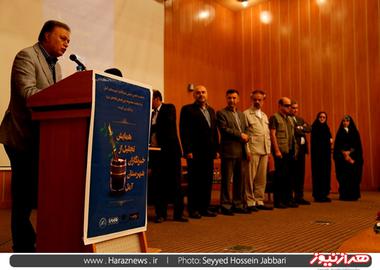
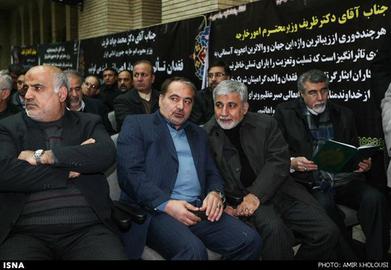
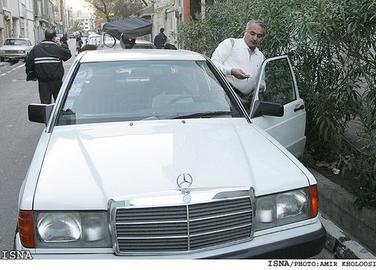
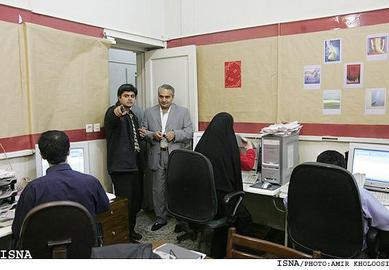

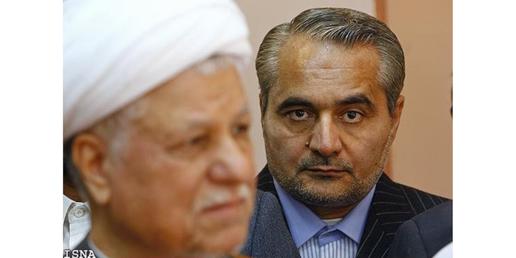




















comments